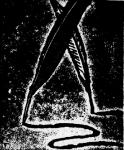
The White Issue is such an excellent achievement! I’ve been sharing it all around: with friends in a progressive charity and with family members who are Black British, and with all sorts of people regarding different aspects of the articles.
I would have liked to see something there about the continued coding of ‘Greek white marble skin’ as a sign of artistry and freedom. The book Black Athena by Martin Bernal shows some of this contradictory history.
It’s poignant that the Romantic poets and revolutionaries inherited this false ideal of the Dorians (one group of Ancient Greeks) being blond and blue-eyed and superior, even as those poets and thinkers consciously struggled for freedom against despotism.
They were also abolitionists, as described by US journalist Nina Martyris in 2015: ‘the Romantic poets Coleridge and Shelley’s early hero, Robert Southey, ... described tea as a “blood-sweeten’d beverage” produced under the “mangling scourge” of the trader’s whip. Shelley used these very words in his first long poem, “Queen Mab”, to evoke plantation slaves toiling “to the sound of the flesh-mangling scourge” to produce “all-polluting luxury and wealth.” Both Shelley and his second wife, Mary, abstained from sugar and drank green tea instead. According to Mary Shelley’s biographer Miranda Seymour, the lonely and misunderstood monster in Mary’s 1818 masterpiece, Frankenstein, is based on the African slaves she saw being worked at the quays in Bristol, a major slave port....’
But, at the same time, Shelley wrote poems like ‘The Revolt of Islam’ celebrating the revolt against Islam.
Likewise, Byron pitted the white Greeks against the Turkish east and south.
The link the Greeks themselves had seen between their civilisation and Egypt – and Africa – was lost.
Major philosophers like Winckelmann (the founder of art history) as well as Locke, Hume, Kant all valued whiteness so intensely.…
Maybe everyone knows this anyway, so it was good that PN said new things for today.
I am particularly interested in the many warnings from seasoned activists in PN not to make people feel shame, because shame is a disabling emotion. This is on my mind because the Network for Social Change is writing, and hopefully acting on, a statement of intent about reparations and racial justice.
Some recent events at the Feminist Library are making me see how hard it is to be true to oneself and also divest power. I think PN gets it just about right.
These events are still ongoing and we can’t see the outcome, so it’s really good to have an extra space for learning and reflection in Peace News.
Solidarity,


